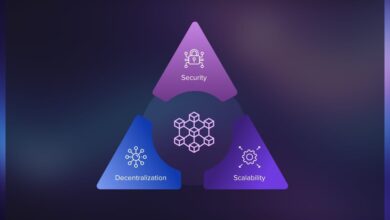Provisional Registration: A Comprehensive Guide

What is Provisional Registration?
Provisional registration is a temporary form of legal documentation that grants an individual or entity the right to operate or engage in specific activities while awaiting permanent registration. This concept is widely used in various fields, including healthcare, education, vehicle registration, and business operations. Provisional registration serves as an interim solution, allowing individuals and organizations to commence their activities legally before completing the often lengthy and complex process of obtaining full registration.
In the context of healthcare, for example, immatriculation provisoire permits new graduates or foreign-trained professionals to practice under supervision while they fulfill the requirements for full licensure. Similarly, in the business world, startups may receive provisional registration to begin operations and establish themselves in the market while they complete the necessary regulatory procedures. This system is crucial for maintaining continuity and reducing delays in professional and commercial activities.
The Importance of Provisional Registration
Provisional registration plays a vital role in ensuring that essential services and operations can continue without interruption. In many cases, the process of obtaining full registration can be protracted due to bureaucratic procedures, verification of credentials, or compliance with regulatory standards. By offering provisional registration, regulatory bodies provide a practical solution to bridge the gap between application and approval.
For healthcare professionals, provisional registration is particularly significant. It allows newly qualified doctors, nurses, and other practitioners to gain hands-on experience and contribute to the healthcare system while their credentials are being verified. This not only addresses workforce shortages but also helps in the professional development of practitioners. Similarly, for businesses, provisional registration enables new enterprises to start generating revenue and building their customer base while they work towards full regulatory compliance. This flexibility is crucial for fostering innovation and economic growth.
Procedures and Requirements for Provisional Registration
The process and requirements for obtaining provisional registration vary across different sectors and jurisdictions. Generally, applicants must submit an application form along with supporting documents that verify their qualifications, identity, and other relevant information. These documents may include academic transcripts, professional certifications, identification proofs, and any other documents required by the regulatory body.
In healthcare, for instance, a medical graduate may need to provide their degree certificate, proof of completion of an internship, and letters of recommendation. Additionally, they might have to pass a preliminary exam or undergo a background check. For businesses, the requirements might include a business plan, proof of address, and evidence of financial stability. Once the application is submitted, it undergoes a review process, and if deemed satisfactory, provisional registration is granted. This registration is typically valid for a specific period, during which the applicant must fulfill all remaining requirements to obtain full registration.
Benefits and Limitations of Provisional Registration
Provisional registration offers several benefits, making it an essential mechanism in various professional and commercial fields. One of the primary advantages is that it allows individuals and organizations to operate legally while awaiting full registration. This ensures that there are no unnecessary delays in starting a professional practice or business operations. Moreover, it provides a structured pathway for applicants to meet the required standards and gain valuable experience in their respective fields.
However, provisional registration also has its limitations. It is usually time-bound, meaning that the registrant must complete the full registration process within a specified period. Failure to do so can result in the suspension or revocation of the provisional registration. Additionally, individuals or entities operating under provisional registration may have certain restrictions, such as the need for supervision or limitations on the scope of their activities. These restrictions are in place to ensure that standards are maintained and to protect public safety and welfare.
Transitioning from Provisional to Full Registration
Transitioning from provisional to full registration involves meeting all the regulatory requirements and completing any outstanding processes necessary for full licensure or certification. This may include passing additional examinations, completing specific training programs, or submitting further documentation for verification. The exact steps required depend on the regulatory body and the field in which the provisional registration is granted.
For healthcare professionals, this transition often involves passing board exams, completing residency programs, or obtaining additional certifications. In the business context, it may require fulfilling all regulatory compliance measures. Such as obtaining environmental clearances, tax registrations, or other sector-specific approvals. Once all requirements are met, the provisional registration is upgraded to full registration, granting. The individual or entity the complete legal status to operate independently without restrictions.
In conclusion, provisional registration is a crucial tool that facilitates the smooth functioning of various professional and commercial activities. It provides a necessary bridge between the initiation of operations and the attainment of full registration, ensuring continuity and reducing delays. While it comes with certain limitations and requirements. The benefits it offers in terms of legal operation, experience gain, and economic growth are substantial. Understanding the procedures, benefits, and transition process of provisional registration is essential for anyone looking to navigate the complexities of regulatory compliance in their respective fields.



